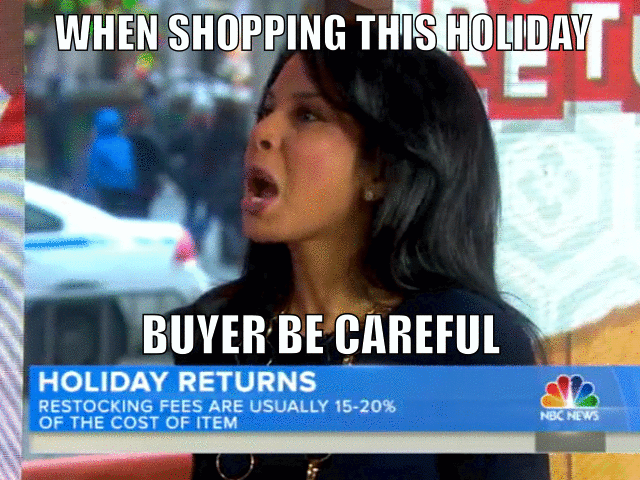This is the no judgement zone, so if you are out shopping on Christmas Eve, more power to you. One thing you shouldn't do (and I WILL judge you for this) is rush around like a crazy person. Why? You are more suceptible to online shopping SCAMS. If you are reading this in a mall/store/in the car on your phone, sit down- take a breath, read through this two minute read SLOWLY. It could prevent future data breeches, compromised bank accounts or fraudulent purchases. Check it:
Scam #1: The shorter browser on your email:
The scenario: According to PayPal 80% of US shoppers will use a mobile device this season to purchase items- add in shopping frenzie and it’s a recipe for confusion.
Watch for: shorter URLs when going to retailer sites or those that end in an odd domain (.XT .TIN etc)
Protect yourself: Go directly to the retailers app in order to purchase. It’s a protected environment and makes the margin of error smaller.
Scam #2: The FedEx email.
The scenario: December 20th is the deadline for two-day shipping and December 21st is the deadline for overnight- again this is playing into the consumer’s need to get things out and delivered.
Watch for: Subject line that says “FedEx Delivery Problems Notification” email asks recipients to open an airbill that’s attached.
Protect yourself: DO NOT OPEN THAT ATTACHMENT that could be a virus! Instead: look on your receipt and call Fed Ex. Give them the airbill number you have and confirm that way. Also Fed Ex will not send you an email if there was a problem delivering- they let the recipient know by putting something on the door or will send it back.
Scam #3: The Bogus App
The scenario: You may want to get that last minute deal, and there is an “app” that promise that- the problem is, it’s a ruse to get your personal and private information.
Watch for: Misspellings in apps, bad grammar no reviews, odd art that doesn’t look legit.
Protect yourself: Download apps from the Apple store or a trusted site. Reviews are KEY.
Scam #4: Insecure Network Connections
The scenario: you are in area where you are connecting to wi-fi in order to make a purchase on your phone, however you are using an insecure connection leaving your personal information vulnerable.
Watch for: a warning it’s an insecure wi-fi connection OR a site that doesn’t have HTTP in front of it.
Protect yourself: ONLY shop on sites that have the HTTP in front. Further, if you get a coupon notification asking for credit card info in exchange for free merchandise, that is ALSO A SCAM!

